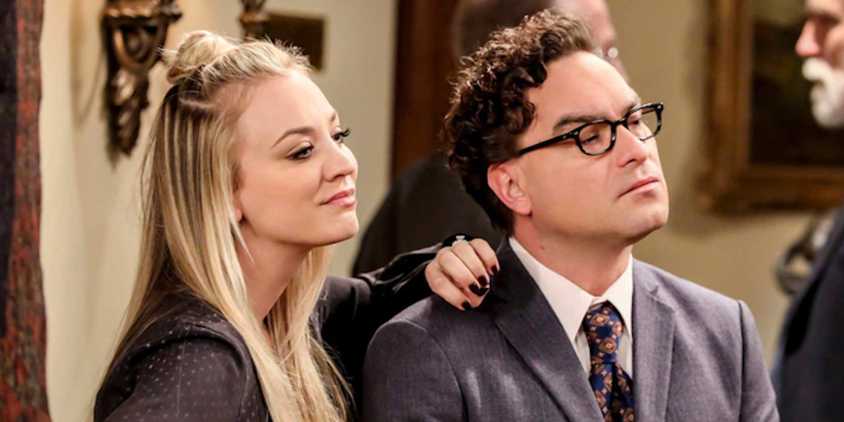The Big Bang Theory spinoff built toward an emotional high point it had foreshadowed for years, only to undercut one of its most compelling character journeys at the last moment. Young Sheldon skillfully prepared viewers for George Sr.’s death and gave most of the Coopers a meaningful farewell. Yet the series stumbled by reversing Missy Cooper’s hard-won growth in season 7, weakening both her arc and the impact of that long-teased tragedy.
A Long-Foreshadowed Goodbye That Mostly Landed
From as early as season 1’s Poker, Faith, and Eggs, Young Sheldon made it clear that George Sr.’s passing was inevitable. By the time the finale arrived, the show had threaded that knowledge into the characters’ lives with care. George Sr.’s sudden off-screen death at work was handled with a restrained poignancy, giving the family—and the audience—space to grieve.
Several payoffs worked beautifully. Georgie’s tearful promise to look after Mary and Missy felt true to his character and cleverly bridged the gap to Georgie & Mandy’s First Marriage. Viewers already familiar with The Big Bang Theory met an older Georgie who resented shouldering responsibility while Sheldon drifted away; Young Sheldon planted that seed when Georgie vowed to step up as the man of the house.
Mary’s transformation also aligned with established canon. Shaken by loss, she gravitated further into the church, hardening in ways that made her sitcom-era self easier to understand. In these cases, the spinoff deepened backstory without contradicting it.
Season 6 Gave Missy a Sharp, Authentic Rebellion
Feeling sidelined, Sheldon’s twin pushed back
Missy’s season 6 storyline stood out for its honesty. Frustrated by the attention lavished on Sheldon, she started testing limits. The show didn’t glamorize her choices: there was impulsive hair dye modeled after Mandy that went sideways; sneaking a boy over to Connie’s place rather than asking her parents; even confronting George Sr. about whispers of infidelity with Brenda. Each beat sketched a teenager lashing out from hurt, not malice.
Her rule-breaking crescendoed when she swiped her father’s truck and tore across state lines with Paige. The fallout stretched beyond a single episode, and the narration hinted that this was only the beginning of a tougher chapter for Missy. It was a darker thread than she typically received, and it felt grounded in recognizable adolescent pain.
The Tornado Scare Looked Like a Turning Point
The season 6 finale, A Tornado, a 10-Hour Flight and a Darn Fine Ring, pushed Missy’s arc to a sobering brink. Trapped with George Sr. in a drainage ditch as a tornado roared overhead, she watched him shield her with his own body. That brush with disaster led to tearful apologies and a fragile, heartfelt reset between father and daughter. For a moment, Young Sheldon appeared to lock in the lessons Missy had learned.
<img src=' ‘ alt=’Missy and George Sr. share a harrowing moment during the tornado episode’>
‘ alt=’Missy and George Sr. share a harrowing moment during the tornado episode’>
On paper, it was an elegant conclusion: Missy’s rebellion made emotional sense, her remorse felt earned, and her renewed bond with George Sr. promised more honest days ahead. If any storyline seemed settled, it was hers.
Season 7 Reversed Missy’s Growth Without a Clear Reason
Back to rule-breaking, with the context stripped away
Then came season 7. Rather than explore a tentative new closeness, the show quickly slid Missy back into familiar recklessness. She threw a blowout at Billy’s house, kept a boyfriend hidden from George Sr., and returned to secrecy for secrecy’s sake. The behavior was not only repetitive; it clashed with what the tornado had just changed.
In season 6, Missy’s choices sprang from something specific: perceived favoritism toward Sheldon and a growing belief that she didn’t matter as much. After the near-death wake-up call, that rationale should have softened. Season 7 didn’t supply a replacement motive, leaving the relapse to read like a reset for jokes rather than character truth. As a result, Missy’s final months with her father felt squandered—and the show never acknowledged the contradiction.
Why This Understates a Powerful Family Tragedy
George Sr.’s death loses resonance when Missy’s lesson disappears
The series capstone Funeral delivered a moving portrait of grief: Sheldon mentally replayed his last exchange with his father, trying to re-script it into something better. The device gave rare access to his thought process and underscored how sudden loss distorts time and memory.
But if anyone needed a real final conversation, it was Missy. After season 6’s tornado, she was poised to be more transparent and present. Season 7’s course correction denied her that growth, leaving her to spend George Sr.’s remaining time sneaking out, lying, and doubling down on a persona the show had already evolved past. The absence of a meaningful follow-through doesn’t just flatten Missy; it dilutes the gravity of George Sr.’s passing for her specifically.
<img src=' ‘ alt=’Young Sheldon cast moments that connect to The Big Bang Theory’>
‘ alt=’Young Sheldon cast moments that connect to The Big Bang Theory’>
Elsewhere, the tragedy served its narrative purpose. It helped justify Sheldon’s leap to Caltech, explained Mary’s deeper religiosity, and reinforced Georgie’s sense of responsibility. For Missy, however, the message turned hollow: season 6 promised a reset, but season 7 wrote her as a stereotypical rebellious teen again, as if none of it happened.
Other Arcs Benefited — Which Highlights Missy’s Missed Opportunity
Georgie’s vow to carry his family reflected forward into The Big Bang Theory and outward into Georgie & Mandy’s First Marriage. Mary’s grief-altered worldview made later choices comprehensible. Even Sheldon’s distance gained nuance through his looping goodbye. The consistency among these arcs throws Missy’s inconsistency into sharper relief. The spinoff had already done the hard work of complicating her; it just needed to honor that progress across the finish line.
What This Means for the Future
Character consistency matters, especially in a franchise built on interlocking timelines. Young Sheldon proved it could deepen canon without breaking it, then briefly forgot that lesson with Missy Cooper. There is still room, perhaps in Georgie & Mandy’s First Marriage or future universe entries, to show the lasting effect of that tornado night and of George Sr.’s sacrifice on Missy’s adult life. A single conversation can’t fix a reversal, but acknowledging the gap can restore emotional logic.
Young Sheldon’s farewell worked best when it trusted the characters to remember what they learned. Missy’s season 6 journey was truthful and affecting; season 7’s backslide wasn’t inevitable, just convenient. If this franchise wants its biggest twists to resonate, it must let growth stick—especially when it has already earned it.
